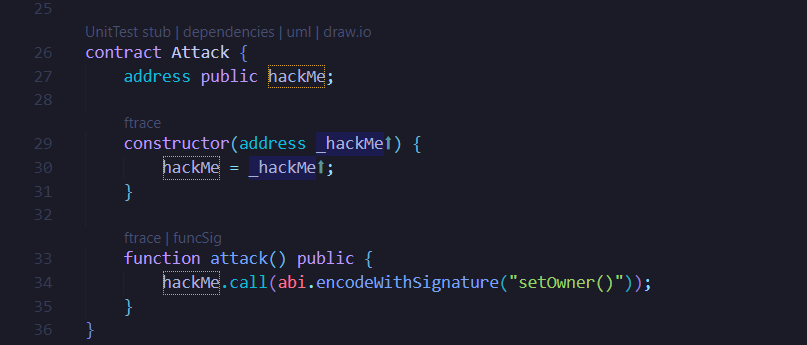crystalize.dev
Oct 24 to Oct 29,2022.
-
An article about Solidity's
delegatecallfunction. -
A simple implementation of
delegatecall.
cd-research-w3-delegatecall
Recently, I stumbled apon the max contract size problem. My contract reached roughly 27KB and I tried downsizing it by optimizing state variables and even attempted to split it into smaller contracts. In the process, I discovered EIP-2535 Diamonds, Multi-Facet Proxy and the use of delegatecall. This article focuses on delegatecall, acting as an important piece in building a solid knowledge base, helps to prepare for the study of advanced smart contract architectures.
When ContractA calls ContractB, ContractA executes its logic with functions from ContractB within ContractA’s context. More specifically, reads and writes to states variables happen to ContractA only, never to ContractB, and functions executed with delegatecall have address(this), msg.sender, msg.value unchanged.
delegatecall affects the state variables of the contract that calls a function with delegatecall. The state variables of the contract that holds the functions that are borrowed are not read or written.
When using delegatecall, there are two things to be aware of.
delegatecallpreserves context (the variables stated above)- Storage layout must be the same for both the caller and the callee contracts
When ContractA’s initialize() is called with 3 ETH,
address(this)== 0x6B175474E89094C44Da98b954EedeAC495271d0Fmsg.sender== 0x3333msg.value== 3 ETH
After the variables are set, the initialize() function calls the setTokenSymbol() function from ContractB. However, our global variable set above, the context of ContractA, remains the same.
The signature of the setOwner() function is passed via abi.encodeWithSignature("setOwner()") from the malicious contract. It first looks for the setOwner() function in the HackMe contract, but fails since there is not such a function in HackMe. As a result, HackMe’s fallback() function is then triggered, calling the Lib2 contract with the signature of the setOwner() function. For Lib2, the function setOwner() exists and changes the owner of the HackMe contract to msg.sender, which is the address of the malicious contract, by context-preservation, resulting in the HackMe contract being compromised.
This happens when state variables are declared in the wrong order or by the wrong data type in the contract.
In this example, the Lib1 contract has a doThis() function where HackMeLayout delegatecall to, and the aNum variable is updated. However, the HackMeLayout contract fails to do so because the state variables are not declared in the same order. The libre address variable is updated instead of the aNum variable as wanted.
To take advantage of this, the Attack contract implicitly converts its address to a uint, updating the libre variable to the Attack contract address. The malicious contract then calls doThis() again. This time, with type compatibility, doThis() runs smoothly with delegatecall, allowing the attacker to update the owner of the HackMeLayout contract address.
-
Do not execute untrusted malicious code. Since ContractB has the ability to modify state vars of ContractA, function code from ContractB could destroy ContractA by calling
selfdestruct -
Do not call an empty contract as it does not revert and will lead to bugs.
-
The layout of both proxy and logic contracts must be the same.
- Make sure to have a thorough understanding of the storage layouts.
- Utilize storage layout management strategies such as Inherited Storage, Diamond Storage, AppStorage.
There are currently two smart contracts architectures that use delegatecall.
delegatecall opens smart contracts to loading code from other libraries during run time.
delegatecall makes contract’s storage implementation of reusable library code possible, allowing the development of a more complex data structure.
https://eips.ethereum.org/EIPS/eip-2535
https://coinsbench.com/unsafe-delegatecall-part-2-hack-solidity-5-94dd32a628c7
https://coinsbench.com/unsafe-delegatecall-part-1-hack-solidity-5-81d5f295edb6





